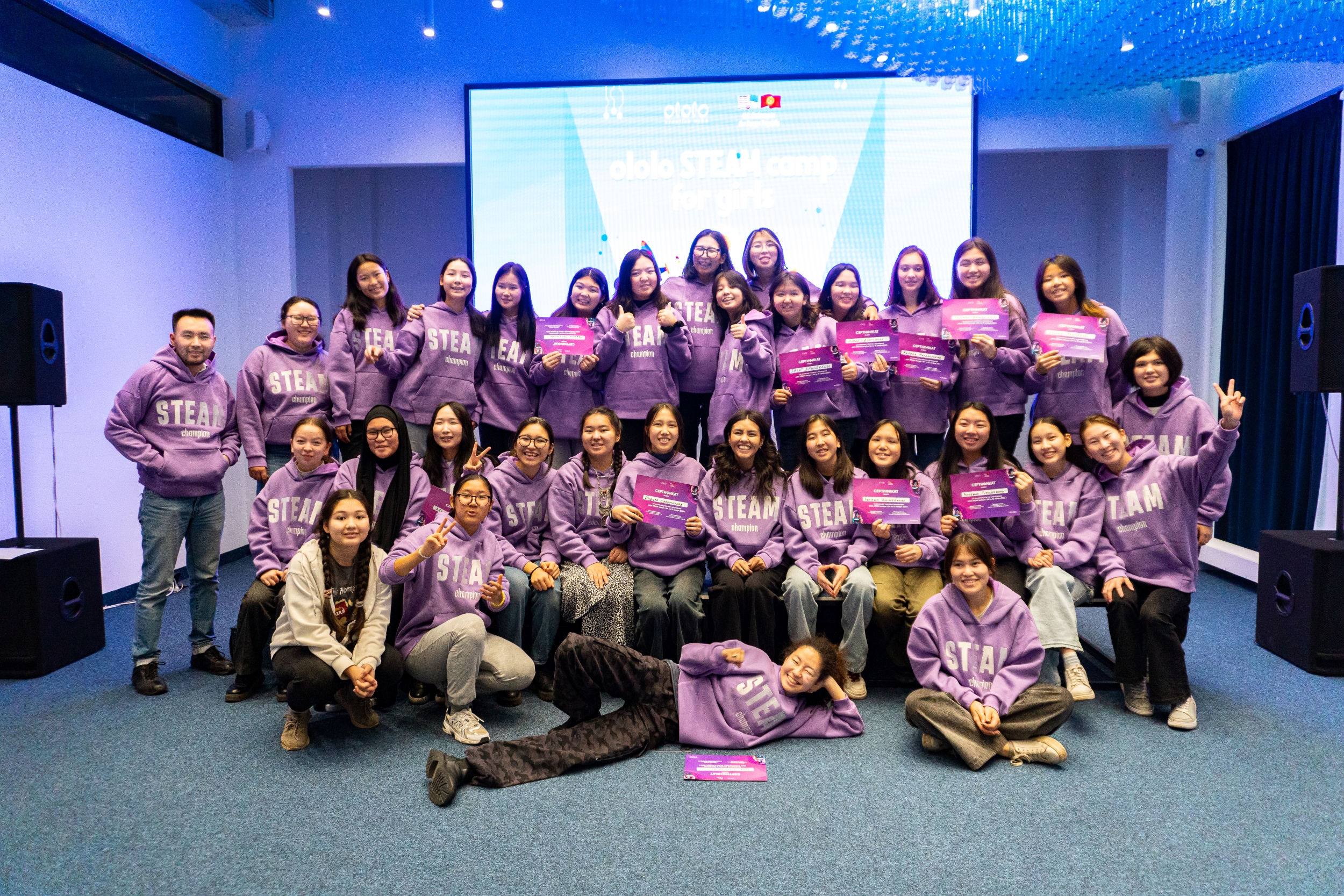Inspiring the Next Generation of Female Innovators in Kyrgyzstan
Written by Bevin Adams, a VSFS Intern with the U.S. Department of State. She is currently pursuing a Bachelor’s Degree in Global Studies and Sociology at University of North Carolina at Chapel Hill.
After completing his International Visitor Leadership Program (IVLP), Daniar Amanaliev knew he needed to address a pressing issue in Kyrgyzstan: the lack of exposure young girls have to careers in the STEM field. Within the country, there are few opportunities for girls to involve themselves in the realm of science, technology, engineering, and mathematics. In response, Daniar recruited a team of industry professionals to put together the “Akylzhan Women Creative Lab Girls STEM Camp,” an Alumni Engagement Innovation Fund (AEIF) project empowering the next generation of female leaders. Through three successful camps, the project gave young girls resources and connections they could utilize in their home communities, spreading knowledge to even more girls who otherwise would not have access to such opportunities.Daniar was nominated for IVLP alongside nine other businesspeople by the U.S. Embassy in Kyrgyzstan in 2018. He traveled across the United States for three weeks, visiting entrepreneurial hubs in cities like New York and Los Angeles to learn about the creation and implementation of Makerspaces. A makerspace is a collaborative work space for making, learning, exploring and sharing with the community. Reflecting on his IVLP experience, Daniar called the program “smooth and professional...The content even better.” Coming back to Kyrgyzstan with new knowledge, he knew he could replicate that kind of experience for other groups within his home country.
The STEM camps, which ran three successful sessions in Bishkek and Osh, recruited girls ages 14-18 with an interest in science and art. “When you work with girls, you need to start early for more opportunities in (their) life. It can change their (life) trajectory when they’re young,” Daniar says of why they focused on that age group. By the end of the camp, participants were motivated to pursue STEM-related careers.Daniar used his connections as the CEO of the ololo Group of companies, the largest creative hubs chain in Central Asia, to find speakers for the camps. He wanted to make sure that the girls felt like the camps were a safe place. He knew that he could rely on his colleagues as their values aligned with both the camps’ and his own business’ mission to encourage innovation and representation. As a result, the majority of the speaker’s were female. “There was a sisterhood atmosphere,” Daniar said. The girls previously had little exposure to women who were successful in STEM, so they were inspired by the stories of women who were progressing in their careers. One of these people was Aisalykyn Talasbekova.
Daniar tapped Aisalykyn, who goes by Aisa, to help develop and run the STEM camps. She leveraged her experience in the business landscape of Kyrgyzstan to work as the account manager for the camp. Through this role, she was able to develop strong relationships with the participants, fostering a supportive and encouraging environment.
Aisa is also an alumna of a U.S. government-funded exchange program. In 2024, Aisa came to Chicago, Illinois as a TechWomen participant. TechWomen is a U.S. Department of State initiative to empower and support the next generation of women STEM leaders across Africa, Central and South Asia, and the Middle East. Much like the participants she worked with at the STEM Camps, Aisa is now meeting with industry professionals and learning how to take the knowledge and experience she gained back to Kyrgyzstan.
Reflecting on her own journey, Aisa offers words of encouragement to those looking to make a difference in their communities. “It may be cliche,” she said, “but the sky's the limit. Anyone can do anything if they have the courage to do it.”From the girls who participated in the STEM Camps to Aisa herself, these programs are available to anyone who is brave enough to submit their application. “Nothing is impossible,” she added. The skills that these young women are learning inSTEMwill help them and their communities continue to find opportunities that they once thought were unimaginable. Already, the participants are developing projects in their own communities. These new programs are funded by the U.S. Embassy in Kyrgyzstan, with the participants utilizing connections they made throughout the STEM camps and even inviting their mentors to attend.
“These are life changing experiences,” Daniar said. From the connections made to the hands-on learning they accomplished, the participants left with a wider range of knowledge ofSTEM fields. They will go on to inspire their peers and create an environment in Kyrgyzstan where women can get the same amount of exposure to this career path as men. But until then, Daniar has some advice for those interested in participating in programs like the STEM camps as well as those interested in U.S. government-sponsored exchange programs: “Relax, trust the process, try to learn, and open your ears and minds.”



